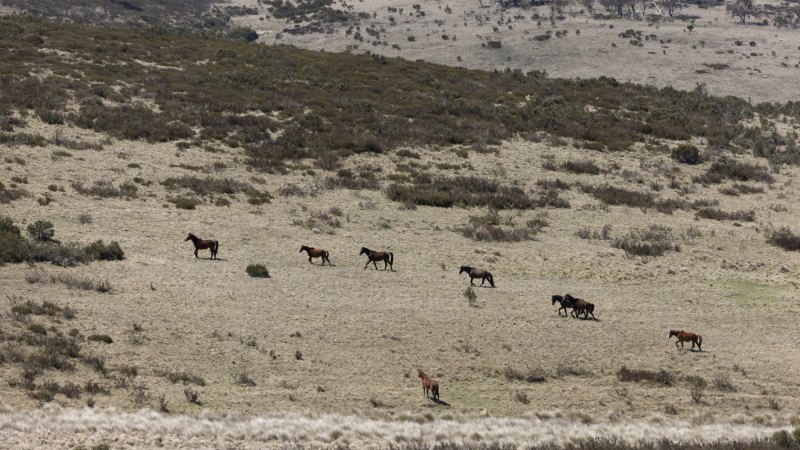Save articles for later
Add articles to your saved list and come back to them any time.
Comedian Hasan Minhaj has responded to an investigation published by The New Yorker in September, which claimed he fabricated and exaggerated parts of his stand-up routines, calling the expose needlessly misleading.
The article, titled Hasan Minhaj’s “Emotional Truths”, claimed Minhaj had embellished several elements in his previous Netflix comedy specials, such as The King’s Jester (2022) and Homecoming King (2017). This included a story in which he said his daughter had been exposed to what he inaccurately believed to be anthrax, and another in which he said he’d asked a white girl to be his prom date, before her parents refused to take photos of their daughter with a “brown boy”.
Comedian Hasan Minhaj has responded to allegations that he embellished stories told in his stand-up specials.
The profile ignited a debate about how and if comedians should be able to embellish the truth for extra laughs, and whether there should be any boundaries regarding the extent of a fabrication.
Minhaj, a 38-year-old US comedian and writer known for his time on The Daily Show and Patriot Act, provided a brief statement shortly after the article’s publication, emphasising that all the stories in his stand-up were based on real events from his life. However, the comedian has expanded on this in a detailed 21-minute video released on Friday.
“With everything that’s happening in the world, I’m aware even talking about this now feels so trivial,” Minhaj says at the beginning of the video. “But being accused of faking racism is not trivial. It’s very serious, and it demands an explanation.”
Minhaj appeared to confirm allegations of embellishment in The New Yorker article, calling a particular routine of his “70 per cent emotional truth … and then 30 per cent hyperbole, exaggeration, fiction.”
However, he provides further context around three specific stories outlined in the profile in his recent video, including his run-in with an FBI informant who infiltrated his family’s mosque – another story The New Yorker alleged he fabricated. He insists each event did take place, lamenting how the article made him look like a “psycho”.
“The truth is, racism, FBI surveillance and the threats to my family happened. And I said this on the record,” he says.
He admits to small embellishments, such as the fact that the mother of the girl he asked to prom had said she didn’t want to take photos with him a few days before prom rather than on the actual day.
“I created the doorstep scene to drop the audience into the feeling of that moment, which I told the reporter.”
Hasan Minhaj has called the New Yorker expose of him “needlessly misleading”.Credit: Invision/AP
He also admits to mingling fact with fiction when speaking about being harassed by the FBI informant and bringing his daughter to hospital following exposure to a white powder he suspected to be anthrax. However, he says he always believed stand-up allows for more artistic license.
“I thought I had two different expectations built into my work: my work as a storytelling comedian and my work as a political comedian, where facts always come first,” he says. “That is why the fact-checking on Patriot Act was extremely rigorous … But in my work as a storytelling comedian, I assumed the lines between truth and fiction were allowed to be a bit more blurry.”
While apologising to those hurt by this, he says he had made artistic choices to emphasise larger issues affecting himself and his community. “I feel horrible that I let people down.”
The New Yorker responded to Minhaj’s video on Friday via a statement to The Hollywood Reporter, defending the veracity of its reporting.
“Hasan Minhaj confirms in this video that he selectively presents information and embellishes to make a point: exactly what we reported,” the statement read. “Our piece, which includes Minhaj’s perspective at length, was carefully reported and fact-checked. It is based on interviews with more than twenty people, including former Patriot Act and Daily Show staffers. We stand by our story.”
In the video, Minhaj says he asked to have more context included in the profile, including details from emails and text messages between himself and the girl he asked to prom, which he had supplied to The New Yorker.
“We confirmed the emails were sent to the reporter and their fact-checker before the article came out. They knew my rejection was due to race. I confirmed it on the record and provided corroborating evidence. And yet, they misled readers by excluding all of that and splicing two different quotes together to leave you thinking that I made up a racist incident,” he says.
Near the end of the video, Minhaj says he understands why people are interested in the topic of embellishment in comedy, but he had hoped it would be examined in a more comprehensive way – by comparing multiple comedy specials and establishing a baseline – rather than by cherry-picking a few of his stories.
Find out the next TV, streaming series and movies to add to your must-sees. Get The Watchlist delivered every Thursday.
Most Viewed in Culture
From our partners
Source: Read Full Article




